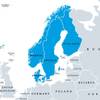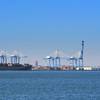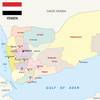Retail Imports to Increase 2.3 Percent in March
Import cargo volume at the nation’s major retail container ports is expected to increase 2.3 percent in March over the same month last year despite federal spending cuts that could slow down cargo processing, according to the monthly Global Port Tracker report released today by the National Retail Federation and Hackett Associates.
“Retailers are aware of the impact of the cuts on Customs operations at the ports and are working to plan accordingly so the impact on merchandise headed for the store shelves is minimized,” NRF Vice President for Supply Chain and Customs Policy Jonathan Gold said. “This is a situation the industry is monitoring very closely.”
Homeland Security Secretary Janet Napolitano warned recently that federal spending cuts under the “sequestration” that took effect March 1 would result in port staffing cutbacks that could cause Customs inspections of cargo containers to take as long as five days. The ports will be impacted by immediate cuts to overtime pay and then furloughs in mid-April.
U.S. ports followed by Global Port Tracker handled 1.33 million Twenty-foot Equivalent Units in January, the latest month for which after-the-fact numbers are available. That was up 0.9 percent from December and 3.7 percent from January 2012. One TEU is one 20-foot cargo container or its equivalent.
February, historically the slowest month of the year, was estimated at 1.16 million TEU, up 6.8 percent from a year ago. March is forecast at 1.27 million TEU, up 2.3 percent from last year; April at 1.35 million TEU, up 3.5 percent; May at 1.44 million TEU, up 5.5 percent; June also at 1.44 million TEU, up 4.2 percent, and July at 1.46 million TEU, up 3.2 percent.
The first six months of 2013 are expected to total 8 million TEU, up 4.3 percent from the first half of 2012. The total for 2012 was 15.8 million TEU, up 2.9 percent from 2011.
“At the port level there may well be a slowdown in customs clearance but trade will continue to flow,” Hackett Associates Founder Ben Hackett said, referring to the sequestration impact. “It may cause terminal congestion if the backlog builds up, and that needs to be planned for in advance.”












